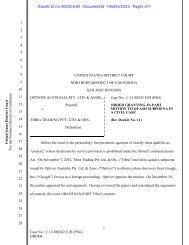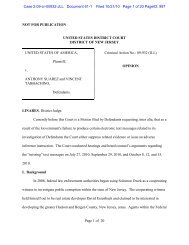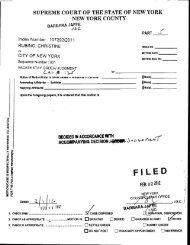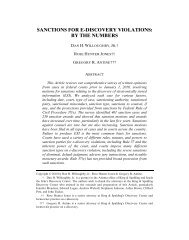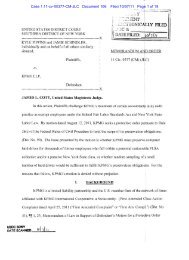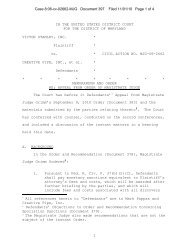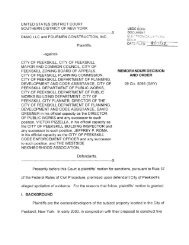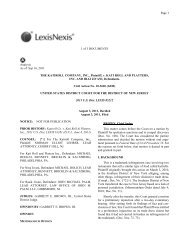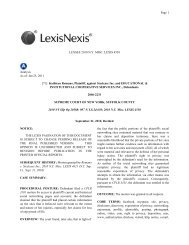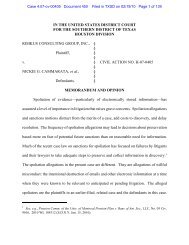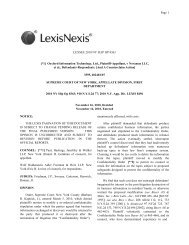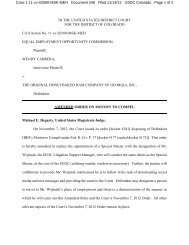DeGeer v. Gillis - E-Discovery Law Alert
DeGeer v. Gillis - E-Discovery Law Alert
DeGeer v. Gillis - E-Discovery Law Alert
You also want an ePaper? Increase the reach of your titles
YUMPU automatically turns print PDFs into web optimized ePapers that Google loves.
Case: 1:09-cv-06974 Document #: 157 Filed: 12/08/10 Page 10 of 32 PageID #:2010<br />
On September 8, 2010, the Court directed Huron to provide Defendants with a general<br />
description of the content of the database it compiled and to identify the individuals searched and<br />
search terms it used to locate documents responsive to Defendants’ subpoena. (Doc. 117). After<br />
further briefing and correspondence between counsel, Defendants continue to assert that Huron<br />
has not fully complied with their subpoena, and Huron continues to assert that it has. Defendants<br />
believe Huron’s response to the subpoena is incomplete because Huron omitted a number of key<br />
custodians and search terms. Defendants want to engage in a more exhaustive search. Huron<br />
submits that it will not undertake any additional searches unless Defendants agree to pay all the<br />
costs thereof. The matter is now fully briefed and ripe for resolution by the Court.<br />
DISCUSSION<br />
Most of the documents responsive to the Huron subpoena exist electronically. As the Court<br />
understands it, all of the responsive databases except accounting and some personnel files are<br />
maintained solely electronically by Huron. Acquisition of electronically stored information (ESI)<br />
from non-parties is addressed by Federal Rule of Civil Procedure 45. Rule 45(a)(1)(C) recognizes<br />
that ESI can be sought by subpoena. Complying with a subpoena for ESI may impose burdens<br />
on the responding person, and Rule 45 protects non-parties subject to a subpoena from unduly<br />
burdensome discovery. For example, Rule 45(c)(1) directs that a party serving a subpoena “must<br />
take reasonable steps to avoid imposing undue burden or expense on a person subject to the<br />
subpoena.” Rule 45(c)(2)(B)(ii) permits the person served with the subpoena to object to it and<br />
directs that an order requiring compliance “must protect a person who is neither a party nor a<br />
party’s officer from significant expense resulting from compliance.” Finally, Rule 45 mandates that<br />
the court from which the subpoena was issued must “quash or modify a subpoena that ... subjects<br />
a person to undue burden." Fed.R.Civ.P. 45(c)(3)(A)(iv).<br />
-10-



